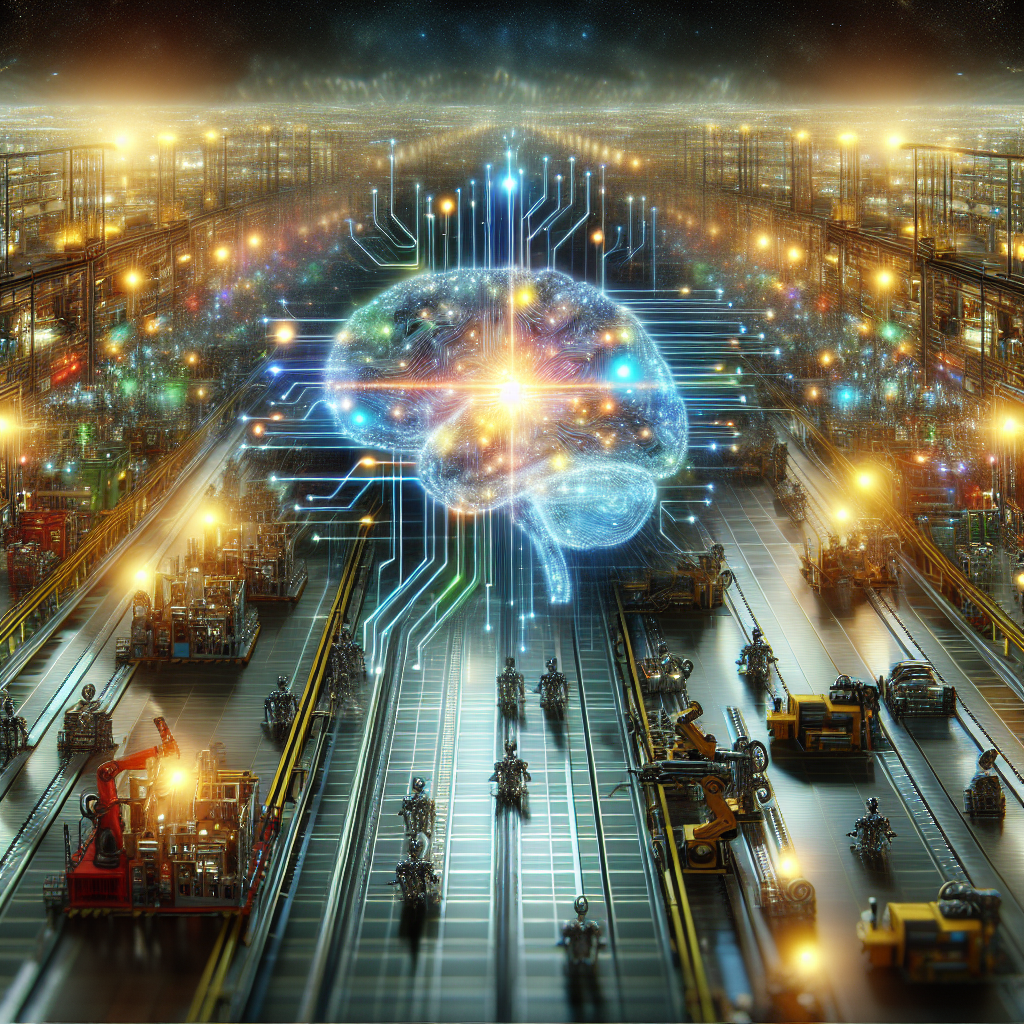AGI in the Workplace: How Automation is Changing the Job Market
In recent years, the rise of Artificial General Intelligence (AGI) has led to significant changes in the workplace. Automation, powered by AGI, is transforming the job market by replacing human workers with machines that can perform tasks faster, more accurately, and at a lower cost. This has raised concerns about the future of work and the impact of automation on employment.
In this article, we will explore the role of AGI in the workplace, how automation is changing the job market, and the implications for workers and businesses. We will also address some frequently asked questions about AGI and its impact on the workforce.
What is AGI?
Artificial General Intelligence, or AGI, refers to machines that have the ability to perform any intellectual task that a human can do. Unlike narrow AI, which is designed to perform specific tasks, AGI is capable of learning and adapting to new situations. This makes AGI more versatile and powerful than traditional AI systems.
AGI has the potential to revolutionize the way we work by automating complex tasks that were previously thought to be beyond the capabilities of machines. This includes tasks that require creativity, problem-solving, and decision-making, such as writing reports, analyzing data, and making strategic business decisions.
How is automation changing the job market?
Automation powered by AGI is already transforming the job market in several ways. One of the most significant impacts of automation is the displacement of human workers in industries that rely heavily on manual labor. For example, in manufacturing, robots are increasingly being used to perform repetitive tasks such as assembling products, leading to job losses for human workers.
Automation is also changing the nature of work by creating new opportunities for workers to collaborate with machines. For example, in healthcare, AI-powered systems are being used to assist doctors in diagnosing diseases and recommending treatment options. This allows healthcare professionals to focus on more complex tasks that require human judgment and empathy.
Another impact of automation is the creation of new job roles that require skills in AI and machine learning. As more businesses adopt AGI technologies, there is a growing demand for workers who can design, implement, and maintain these systems. This has led to the emergence of new job titles such as AI engineer, data scientist, and robotic process automation specialist.
What are the implications for workers and businesses?
The rise of AGI and automation has both positive and negative implications for workers and businesses. On the one hand, automation has the potential to increase productivity, reduce costs, and improve the quality of products and services. This can lead to higher profits for businesses and higher wages for workers.
On the other hand, automation also poses challenges for workers who may be displaced by machines. This can lead to job insecurity, income inequality, and social unrest. In order to address these challenges, businesses and policymakers need to invest in education and training programs that help workers acquire the skills they need to succeed in an automated workplace.
Businesses also need to consider the ethical implications of automation, such as the impact on job quality, privacy, and data security. As AGI becomes more powerful and pervasive, it is important for businesses to ensure that their use of automation is aligned with ethical principles and values.
FAQs about AGI in the Workplace
Q: Will automation lead to mass unemployment?
A: While automation may lead to job losses in some industries, it is also creating new job opportunities in others. The key is for workers to acquire the skills they need to adapt to the changing job market.
Q: How can businesses prepare for the rise of AGI?
A: Businesses can prepare for the rise of AGI by investing in training programs for their employees, adopting new technologies, and developing a strategic plan for integrating automation into their operations.
Q: What are the ethical implications of AGI in the workplace?
A: The ethical implications of AGI in the workplace include concerns about job quality, privacy, and data security. Businesses need to ensure that their use of automation is aligned with ethical principles and values.
Q: How can workers stay relevant in an automated workplace?
A: Workers can stay relevant in an automated workplace by acquiring skills in AI, machine learning, and other emerging technologies. This will help them adapt to the changing job market and secure employment in the future.
Conclusion
AGI is changing the way we work by automating tasks that were previously thought to be beyond the capabilities of machines. While automation has the potential to increase productivity and create new job opportunities, it also poses challenges for workers who may be displaced by machines. In order to address these challenges, businesses and policymakers need to invest in education and training programs that help workers acquire the skills they need to succeed in an automated workplace. By taking a proactive approach to automation, businesses can ensure that they remain competitive in the digital age and create a more inclusive and sustainable workforce for the future.

